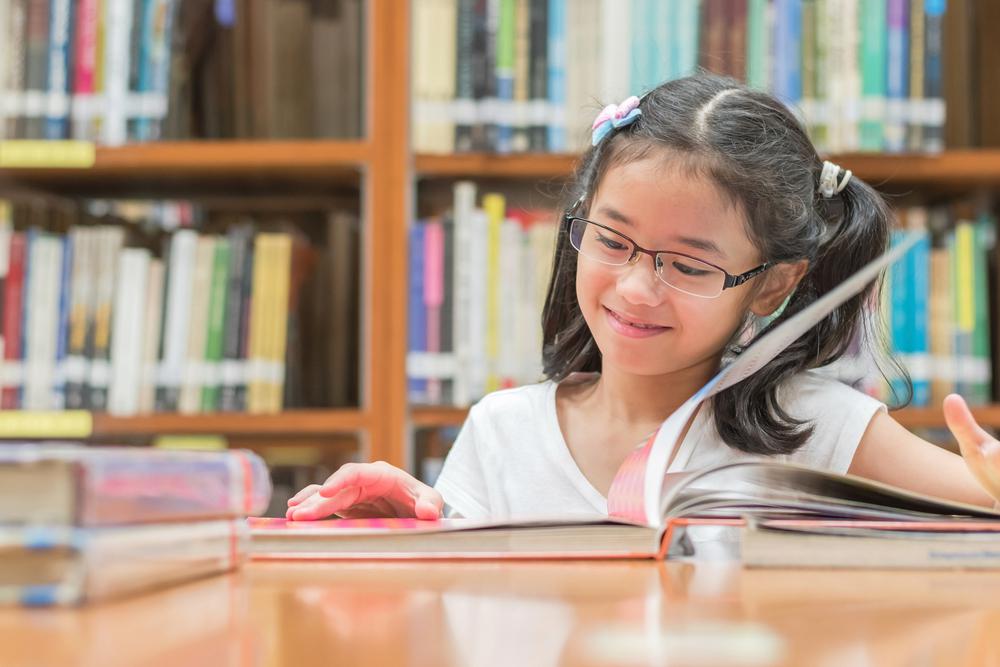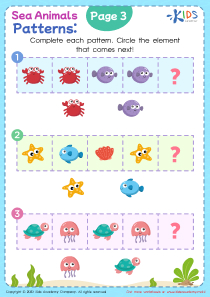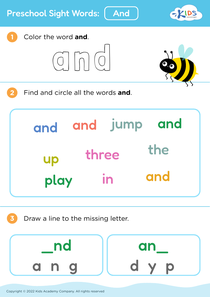Reading Fiction worksheets activities for Preschool
9 filtered results
-
From - To
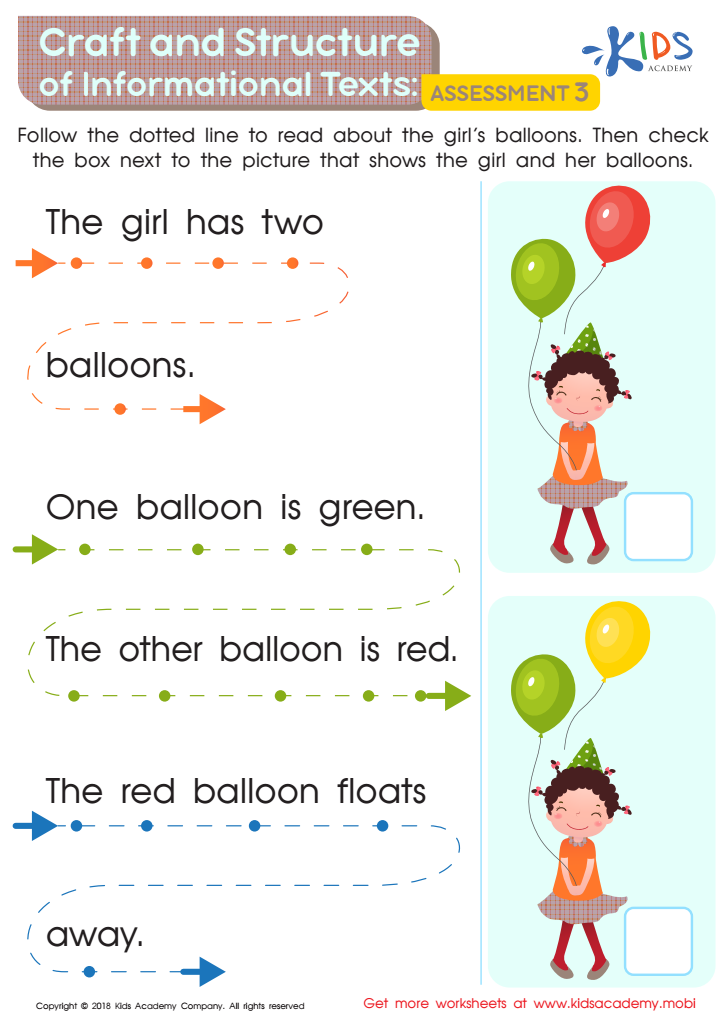

Craft and Structure of Informational Texts: Assessment 3 Worksheet
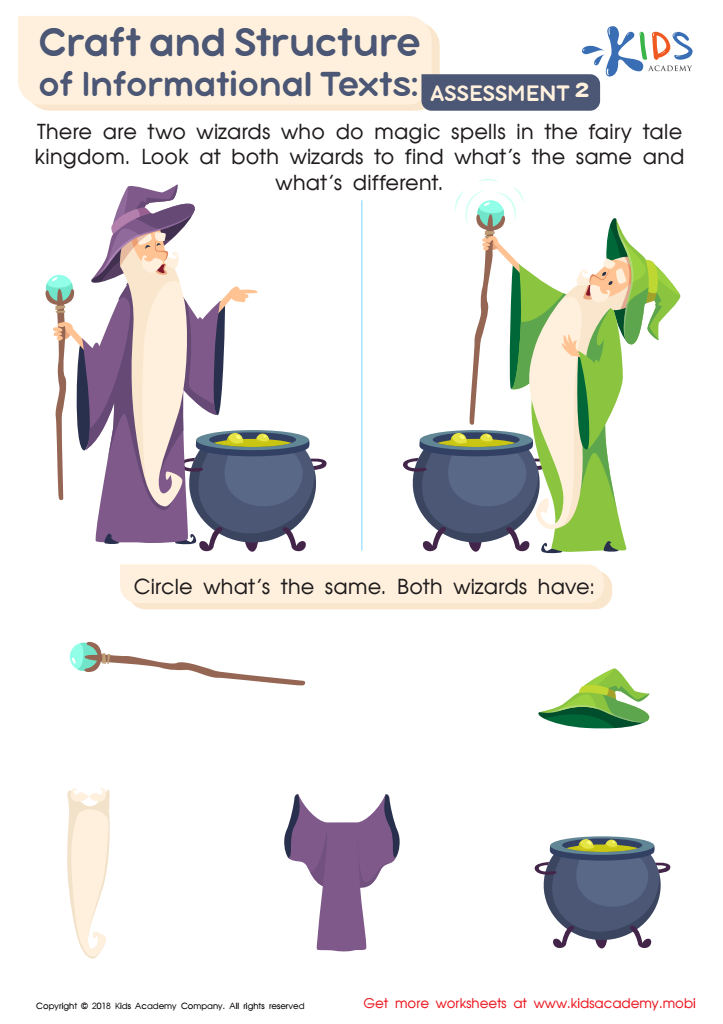

Craft and Structure of Informational Texts: Assessment 2 Worksheet
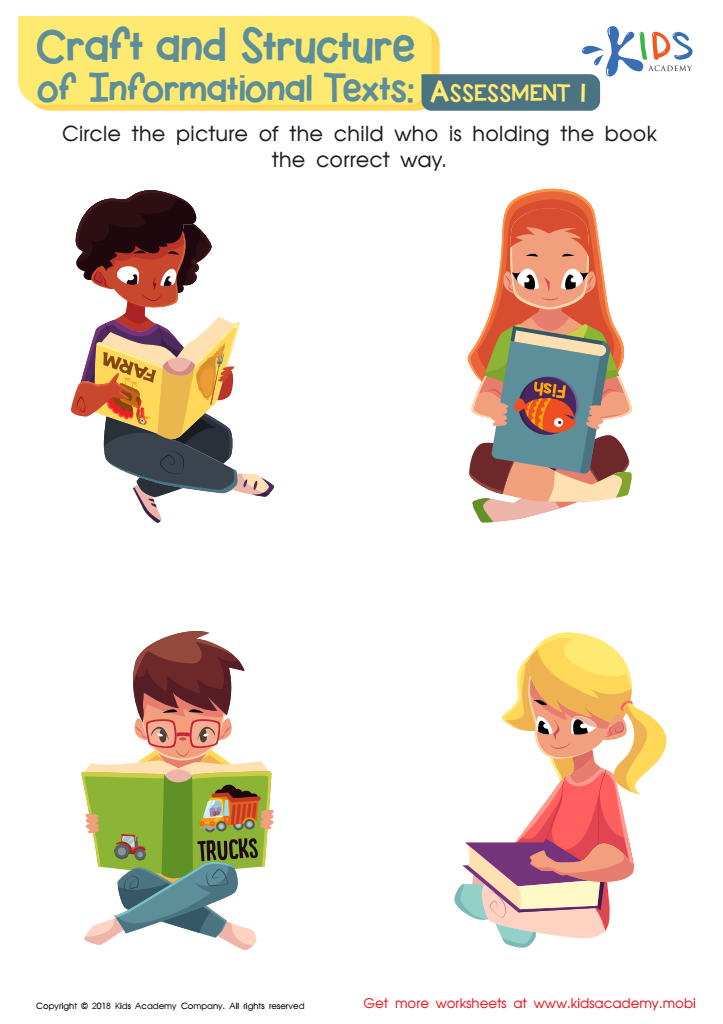

Craft and Structure of Informational Texts: Assessment 1 Worksheet
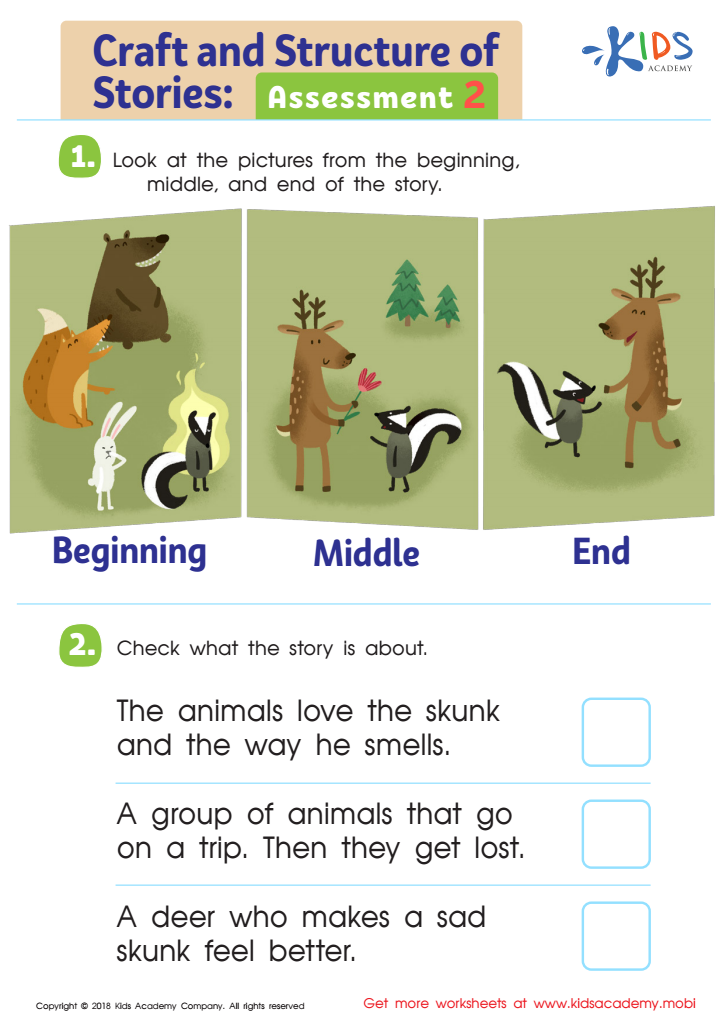

Craft and Structure of Stories: Assessment 2 Worksheet
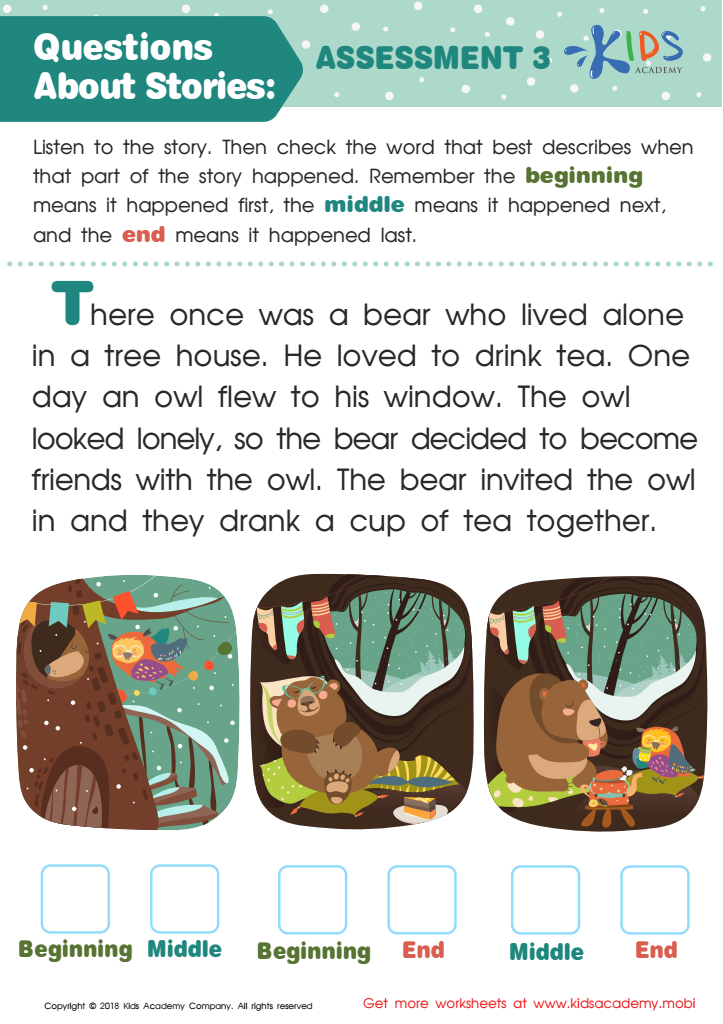

Questions About Stories: Assessment 3 Worksheet
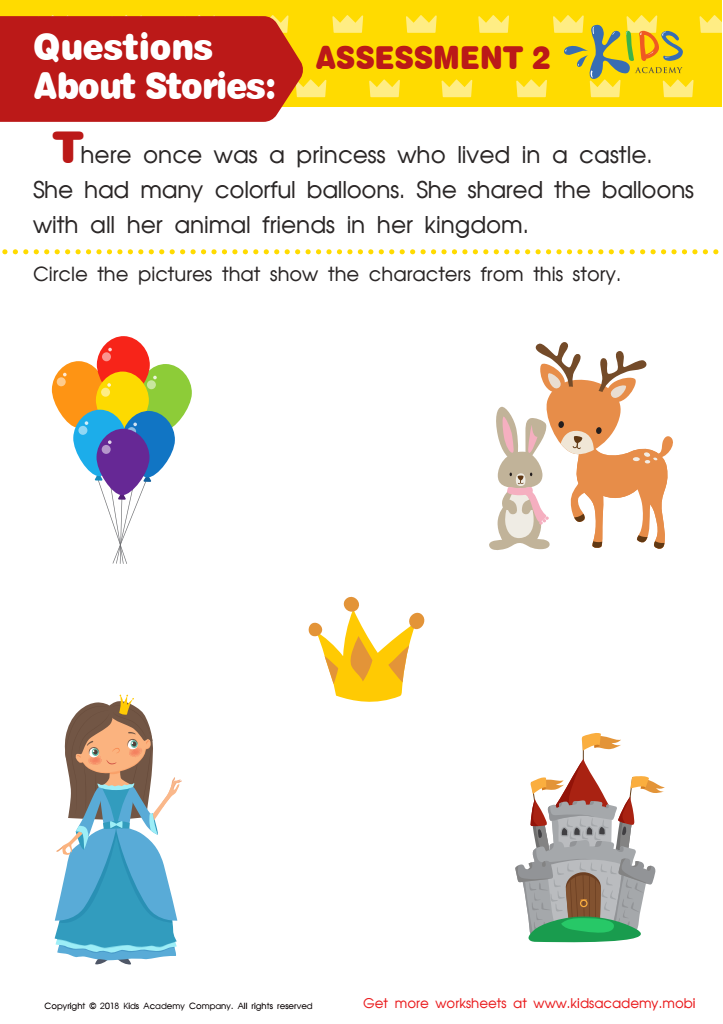

Questions About Stories: Assessment 2 Worksheet
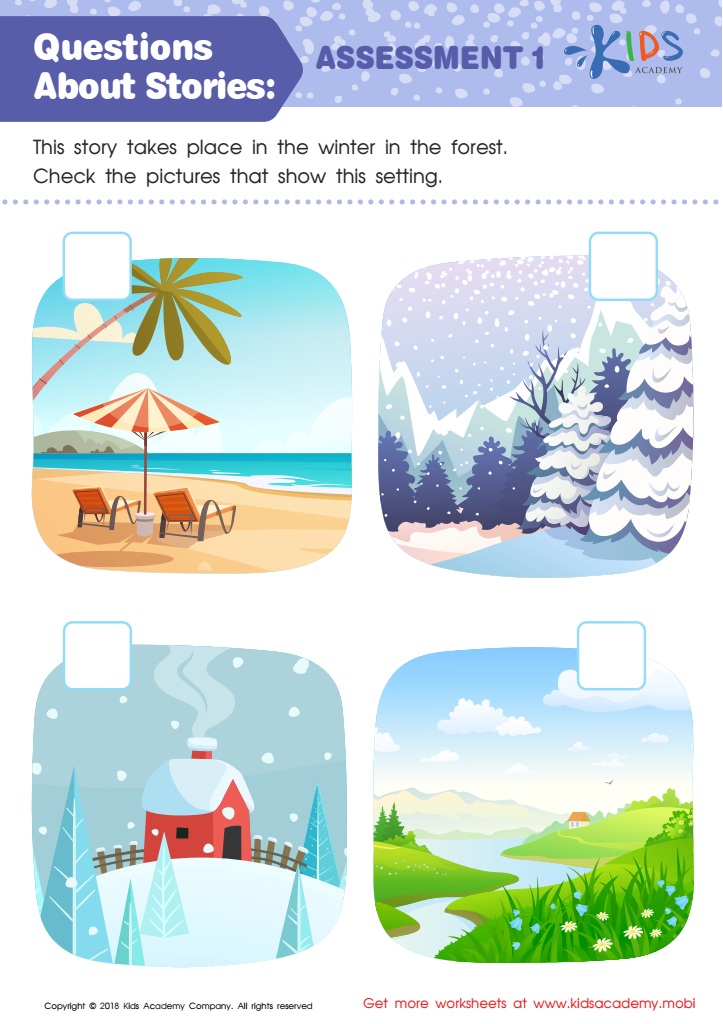

Questions About Stories: Assessment 1 Worksheet
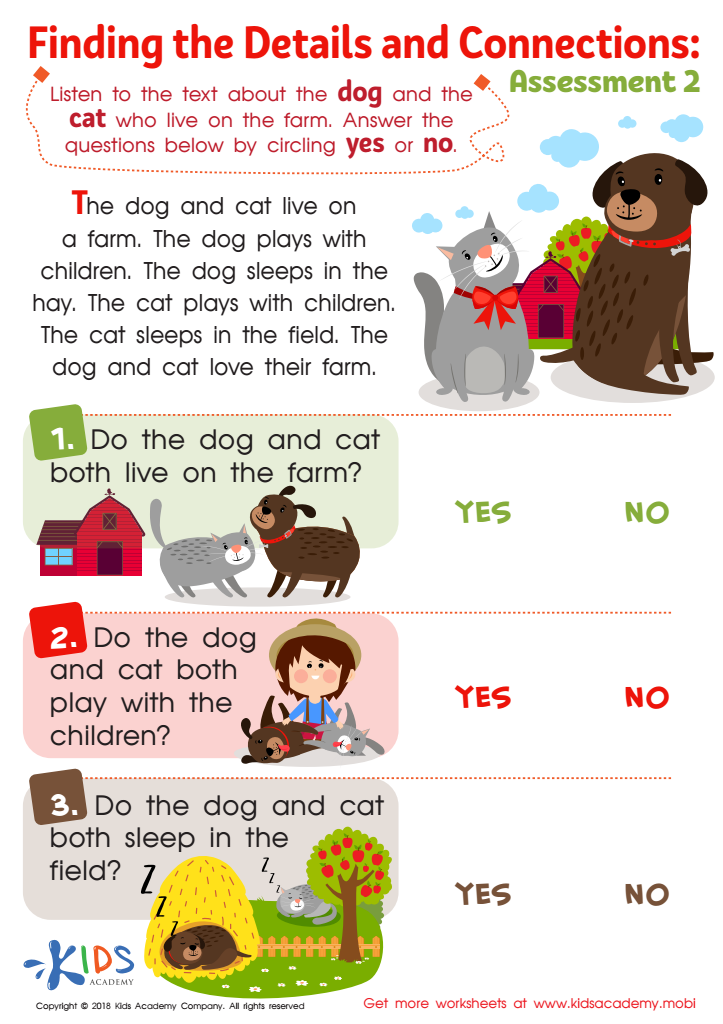

Finding the Details and Connections: Assessment 2 Worksheet
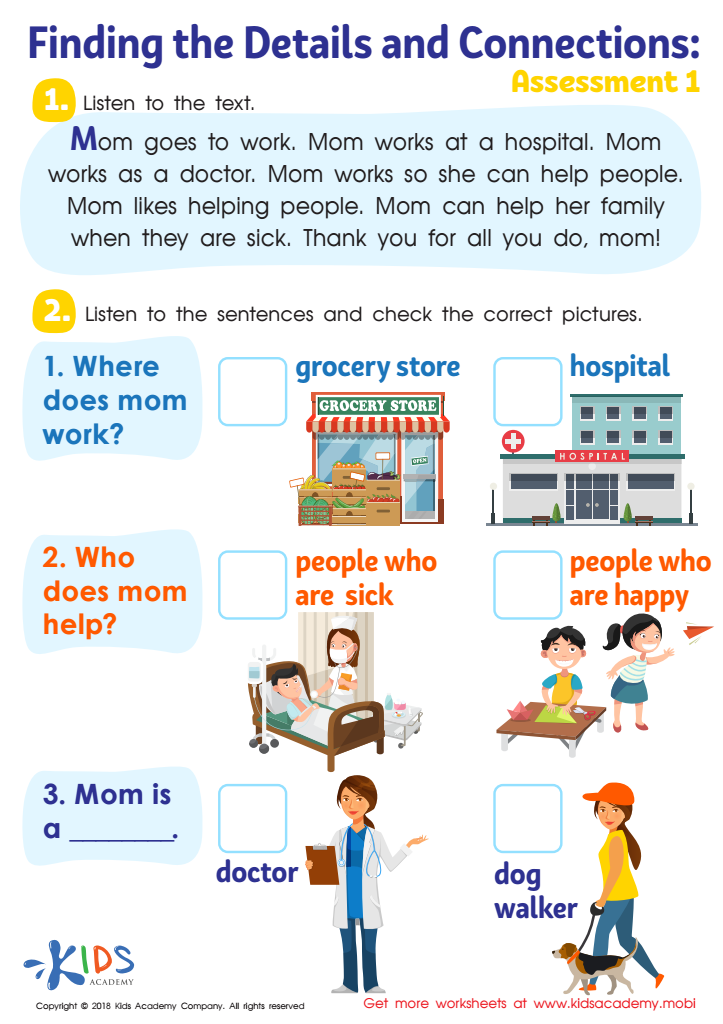

Finding the Details and Connections: Assessment 1 Worksheet
Reading Fiction worksheets activities for Preschool are a cornerstone in the development of young learners for a multitude of reasons. In the early stages of education, it is crucial to engage children in activities that not only entertain but also educate. This is exactly where Reading Fiction worksheets activities for Preschool come into play, offering a unique blend of fun and learning that is tailored specifically to the needs of young minds.
Firstly, these worksheets are designed to cultivate a love for reading from an early age. By introducing preschoolers to the enchanting world of fiction through stories and characters that capture their imagination, these activities lay the groundwork for lifelong reading habits. Children are naturally drawn to stories, and when these narratives are presented in an interactive worksheet format, it enhances their engagement and interest in reading.
Moreover, Reading Fiction worksheets activities for Preschool serve as an excellent tool for developing critical language and literacy skills. As children navigate through the stories, they are encouraged to recognize and understand basic vocabulary, comprehend the plot, and identify characters. These exercises not only improve their reading comprehension but also enrich their vocabulary, setting a solid foundation for their future academic endeavors.
Additionally, these worksheets foster creativity and imagination in children. By immersing themselves in fictional worlds, preschoolers learn to visualize and interpret the storylines, which stimulates their creative thinking. This not only enhances their cognitive development but also encourages them to explore their own imaginative capabilities.
Furthermore, Reading Fiction worksheets activities for Preschool are instrumental in enhancing emotional intelligence. Through the stories, children learn about different emotions, empathy, and the complexities of relationships. This early exposure to emotional learning is vital for their social and emotional development.
In conclusion, Reading Fiction worksheets activities for Preschool are an invaluable resource in the educational journey of young learners. They not only make reading an enjoyable experience but also equip children with essential reading, cognitive, and emotional skills that are critical for their growth and development.

 Assign to My Students
Assign to My Students








